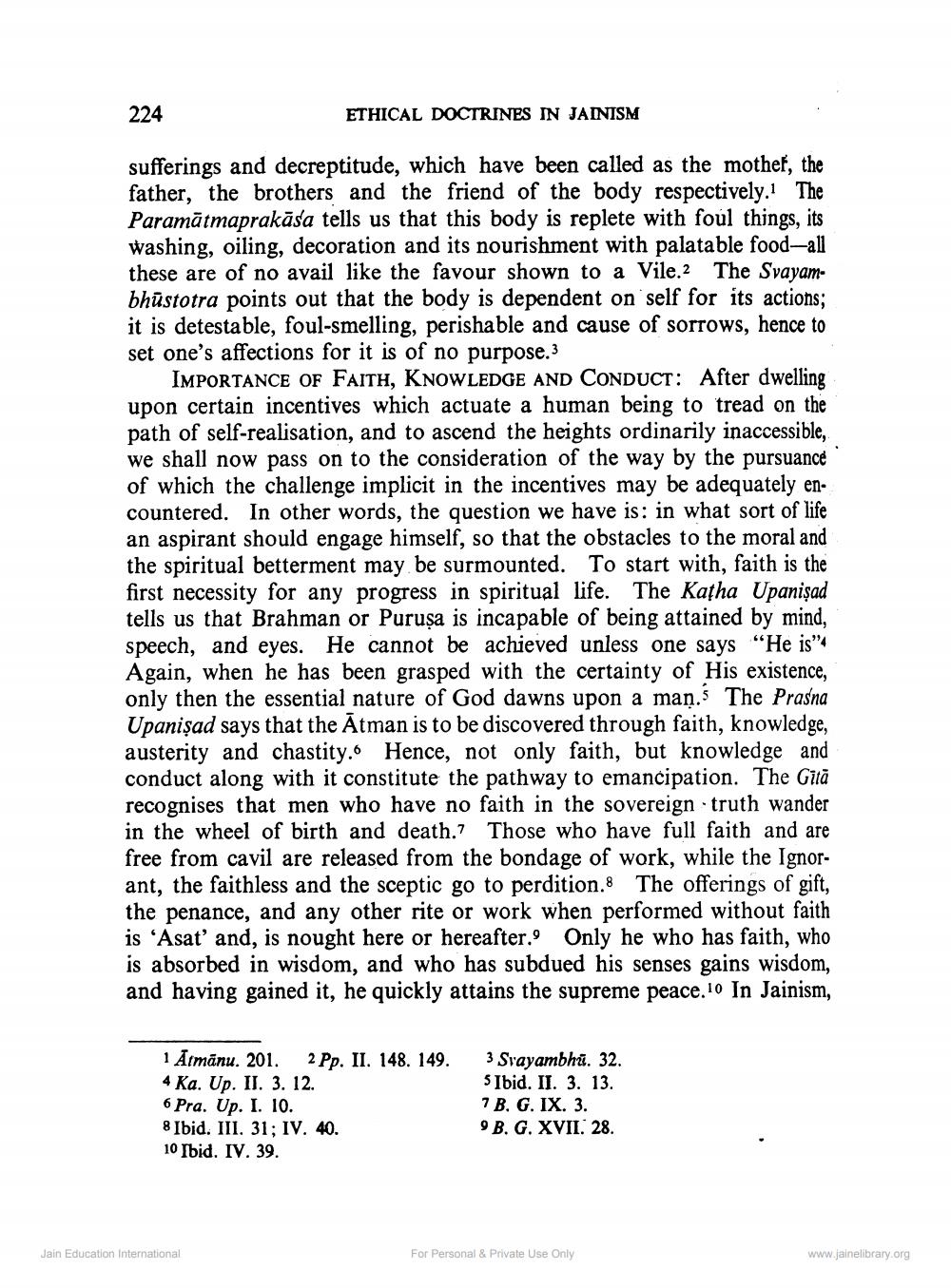________________
224
ETHICAL DOCTRINES IN JAINISM
sufferings and decreptitude, which have been called as the mother, the father, the brothers and the friend of the body respectively. The Paramātmaprakāsa tells us that this body is replete with foul things, its washing, oiling, decoration and its nourishment with palatable food-all these are of no avail like the favour shown to a Vile.2 The Svayambhūstotra points out that the body is dependent on self for its actions; it is detestable, foul-smelling, perishable and cause of sorrows, hence to set one's affections for it is of no purpose.3
IMPORTANCE OF FAITH, KNOWLEDGE AND CONDUCT: After dwelling upon certain incentives which actuate a human being to tread on the path of self-realisation, and to ascend the heights ordinarily inaccessible, we shall now pass on to the consideration of the way by the pursuance of which the challenge implicit in the incentives may be adequately encountered. In other words, the question we have is: in what sort of life an aspirant should engage himself, so that the obstacles to the moral and the spiritual betterment may be surmounted. To start with, faith is the first necessity for any progress in spiritual life. The Katha Upanişad tells us that Brahman or Purusa is incapable of being attained by mind, speech, and eyes. He cannot be achieved unless one says “He is" Again, when he has been grasped with the certainty of His existence, only then the essential nature of God dawns upon a man. The Prasna Upanişad says that the Ātman is to be discovered through faith, knowledge, austerity and chastity. Hence, not only faith, but knowledge and conduct along with it constitute the pathway to emancipation. The Gita recognises that men who have no faith in the sovereign truth wander in the wheel of birth and death. Those who have full faith and are free from cavil are released from the bondage of work, while the Ignorant, the faithless and the sceptic go to perdition. The offerings of gift, the penance, and any other rite or work when performed without faith is 'Asat' and, is nought here or hereafter. Only he who has faith, who is absorbed in wisdom, and who has subdued his senses gains wisdom, and having gained it, he quickly attains the supreme peace.10 In Jainism,
1 Atmānu. 201. 2 Pp. II. 148. 149. 4 Ka. Up. II. 3. 12. 6 Pra. Up. I. 10. 8 Ibid. III. 31; IV. 40. 10 Ibid. IV. 39.
3 Svayambhū. 32. 5 Ibid. II. 3. 13. 7 B. G. IX. 3. 9 B. G. XVII. 28.
Jain Education International
For Personal & Private Use Only
www.jainelibrary.org




